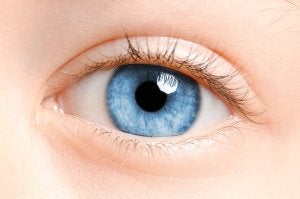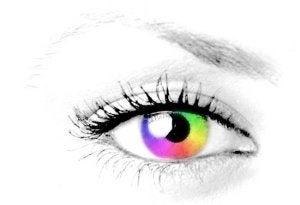-
Tips for Keeping Your Child’s Eyes Healthy
 As a parent, you’re responsible for protecting the health of your child’s eyes. This includes taking him for regular visits to an eye doctor or ophthalmologist near you. You’ll also need to buy him appropriate protective eyewear for sports and swimming, watch him carefully when he handles sharp objects, and keep him away from fireworks and other incendiary devices. For more tips on children’s eye care near Chicago , keep reading.
As a parent, you’re responsible for protecting the health of your child’s eyes. This includes taking him for regular visits to an eye doctor or ophthalmologist near you. You’ll also need to buy him appropriate protective eyewear for sports and swimming, watch him carefully when he handles sharp objects, and keep him away from fireworks and other incendiary devices. For more tips on children’s eye care near Chicago , keep reading.Protect Eyes from Damage
When your child is very young, don’t allow him to play with any toys that have sharp edges that may gouge or damage the eyes. Don’t let him play on or near tables or other furniture with sharp corners. When your child begins swimming or playing sports, buy him appropriate safety eyewear to protect his eyes from injury. If your child spends prolonged periods of time outdoors, make sure that he wears sunglasses regularly.
Visit an Ophthalmologist Regularly
An ophthalmologist is a medical doctor who specializes in eye and vision care. Ophthalmologists are different from ophthalmologists, as they are eye doctors who can prevent, diagnose, and treat a wide array of eye disorders and diseases. If there is a history of eye or vision problems in your family, it is even more important that your child visit an ophthalmologist regularly. Your child’s ophthalmologist can provide your child with eye exams, and screen his eyes for signs of illness, disease, cancer, and vision problems.
Have Vision Checked With an Eye Doctor
An eye doctor or ophthalmologist can provide your child with regular vision checkups. He will also test your child for astigmatism, glaucoma, and other eye conditions. If your child has poor vision, an eye doctor will provide eyeglasses or contact lenses that can correct his vision. Certain vision problems and eye conditions become worse without treatment, so even if your child hasn’t mentioned suffering from any vision loss, he should still visit an eye doctor regularly.
-
Understanding Common Eye Problems
There are many different types of eye problems and eye disorders that people are vulnerable to. An eye doctor or ophthalmologist will regularly screen you for common eye problems. He can also offer you prevention tips to help reduce your risk of developing certain eye problems. If you’re interested in eye care or vision correction near Chicago , visit an experienced eye doctor near you.
Watch this video for some helpful information on the most common eye problems that eye doctors come across. In the clip, a representative of the National Eye Institute discusses such issues as nearsightedness, farsightedness, astigmatism, and presbyopia.
-
Tips for Recovering from LASIK
 If your eye doctor or ophthalmologist recommends LASIK eye surgery near Chicago , you may have a lot of questions about the procedure and the recovery period. Your recovery will be much shorter and less stressful if you follow the advice of your eye doctor. Here are some tips on how to help yourself recover more quickly from LASIK surgery.
If your eye doctor or ophthalmologist recommends LASIK eye surgery near Chicago , you may have a lot of questions about the procedure and the recovery period. Your recovery will be much shorter and less stressful if you follow the advice of your eye doctor. Here are some tips on how to help yourself recover more quickly from LASIK surgery.Give Yourself a Break
Give your eyes time to rest throughout the day. Don’t use them for taxing activities or to focus on small objects for prolonged periods of time. Take a few days off of school or work, and let yourself slowly ease back into the routine of your daily life. If you notice that your eyes feel strained or stressed, or if you develop a headache, lie down and close your eyes for a period of time. You can also try lying down in a dim room.
Protect Your Eyes
Take baths instead of showers to prevent water, shampoo, and soap from dripping into your eyes and irritating them. Do not rub your eyes with your hands or a towel. Do not play sports or participate in any water activities for at least a month after surgery. Your vision and depth perception have not completely adjusted, and you don’t want to risk getting hit in the eyes or sustaining an eye injury. Wear protective eyewear for at least 2 weeks post-surgery, including while you sleep or if you shower. Wear dark sunglasses both indoors and outdoors to protect your eyes from the sun and harsh lights.
Follow Your Doctor’s Advice
Visit your eye doctor regularly post-surgery, particularly 24 hours after the procedure. Follow his advice strictly. If he prescribes you medicated eye drops, use them as directed. They can help your eyes heal faster, and will make them feel less dry and irritated. Your eye doctor may suggest that you avoid wearing makeup or using facial lotions and creams. They can easily get in your eyes and cause irritation and infection.
